The Essential Guide to CSR: How Corporate Responsibility Shapes Reputation
Imagine a world where businesses are valued for their financial success and their positive impact on society and the environment. This is the promise of Corporate Social Responsibility, a concept that is reshaping corporate landscapes globally.
What is CSR?
Corporate Social Responsibility (CSR) is the concept where businesses integrate social and environmental concerns into their operations and interactions with stakeholders.
Rather than focusing solely on profit, companies practicing CSR strive to impact society and the environment positively.
CSR is rooted in the idea that businesses are responsible beyond their core operations and can be crucial in addressing global challenges.
Think of CSR as a company’s way of “doing well by doing good.”
It’s akin to a neighbor who maintains their property, volunteers in community clean-ups, and supports local schools. This approach fosters goodwill and trust, invaluable reputation management assets.
Examples of CSR in Action
CSR initiatives can take many forms, depending on the company’s industry, size, and values.
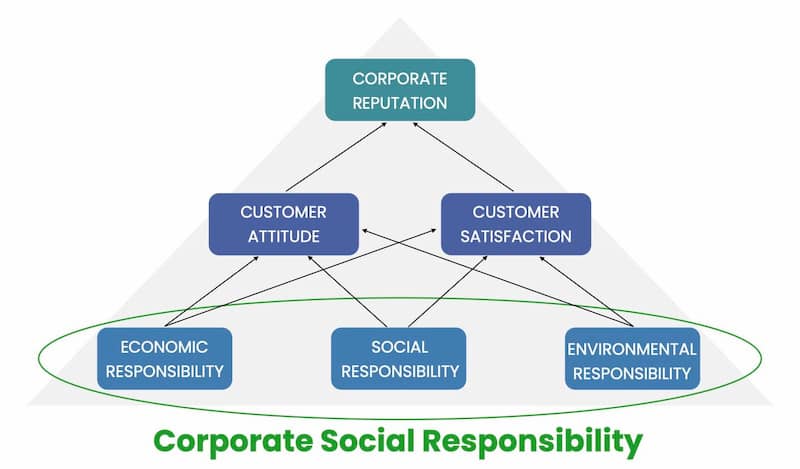
Here are some notable examples:
Environmental Sustainability
One of the most common areas of CSR is environmental sustainability.
Environmental sustainability reflects a company’s commitment to reducing its ecological footprint and promoting the health of our planet.
Key Areas of Environmental Sustainability CSR
- Sustainable sourcing
- Energy efficiency
- Waste reduction
- Carbon footprint reduction
- Water conservation
- Eco-friendly products
Benefits of Environmental Sustainability CSR
Enhanced Corporate Reputation
- Demonstrates a commitment to protecting the environment, which resonates with eco-conscious consumers.
- Builds trust and loyalty among stakeholders who value sustainability.
Cost Savings
- Reducing energy and waste can lead to significant cost savings.
- Efficient use of resources can improve the bottom line.
Compliance and Risk Management
- Staying ahead of environmental regulations can prevent legal issues and fines.
- Reducing environmental risks helps safeguard the company’s future.
Competitive Advantage
- Differentiates the brand in the marketplace.
- Attracts customers who prefer sustainable brands and products.
Example: Patagonia’s Environmental Commitment
Patagonia, an outdoor clothing company, has committed to using sustainable materials in its products. They also donate 1% of their sales to environmental causes. This helps the planet and builds a strong corporate reputation as an environmentally conscious brand.
Community Engagement
Community engagement is another critical aspect of CSR. Community engagement emphasizes a company’s commitment to positively impacting the communities where it operates.
Effective community engagement builds strong relationships, fosters goodwill, and enhances corporate reputation.
Key Areas of Community Engagement CSR
- Local economic development
- Education and training
- Health and well-being
- Volunteer programs
- Charitable donations
- Community building activities
Benefits of Community Engagement CSR
- Strengthened Corporate Reputation
- Builds trust and loyalty among community members who see the company as a positive force.
- Enhances the company’s image as a responsible and caring organization.
- Employee Morale and Retention
- Engaging in community service boosts employee morale and satisfaction.
- Employees take pride in working for a company that gives back, leading to higher retention rates.
- Brand Loyalty
- Customers are more likely to support visibly active companies in their communities.
- Positive community relations can translate into increased brand loyalty and improved customer service.
- Social Impact
- Directly addresses social issues and contributes to the overall well-being of the community.
- Creates a lasting positive impact on societal development.
Example: Microsoft’s Community Engagement
Microsoft exemplifies community engagement through its various CSR initiatives. The company’s YouthSpark program is dedicated to increasing access to computer science education for youth worldwide. By partnering with schools and educational institutions, Microsoft provides scholarships, internships, and job training programs that empower young people and prepare them for the future.
Ethical Labor Practices
Ethical labor practices are a vital component of CSR, focusing on ensuring fair treatment, safe working conditions, and respect for workers’ rights throughout the supply chain.
Implementing ethical labor practices fosters a positive corporate reputation and contributes to the well-being of employees and communities.
Key Areas of Ethical Labor Practices CSR
- Fair wages and compensation
- Safe working conditions
- No child labor
- Workers’ rights and freedom of association
- Non-discrimination and equal opportunity
- Work-life balance
Benefits of Ethical Labor Practices CSR
- Enhanced Corporate Reputation
- Demonstrates a commitment to ethical standards, building stakeholder trust and loyalty.
- Attracts socially conscious consumers and investors.
- Improved Employee Morale and Retention
- Fair treatment and safe working conditions lead to higher employee satisfaction and loyalty.
- Reduces turnover and attracts top talent.
- Operational Efficiency and Productivity
- Safe and healthy working environments contribute to higher productivity and fewer workplace accidents.
- Ethical practices can lead to more efficient and reliable supply chains.
- Legal Compliance and Risk Mitigation
- Adhering to labor laws and regulations reduces the risk of legal issues and fines.
- Proactively addressing labor issues can prevent scandals and reputation damage.
Example: Fairphone’s Ethical Labor Practices
Fairphone, a smartphone manufacturer, is renowned for its commitment to ethical labor practices. The company ensures fair wages, safe working conditions, and respect for workers’ rights throughout its supply chain.
Importance of CSR in Corporate Reputation
CSR plays a significant role in shaping public perception.
Consumers, employees, investors, and other stakeholders view companies that actively support social and environmental issues more favorably.
Here’s why CSR is crucial for corporate reputation:
Building Trust and Credibility
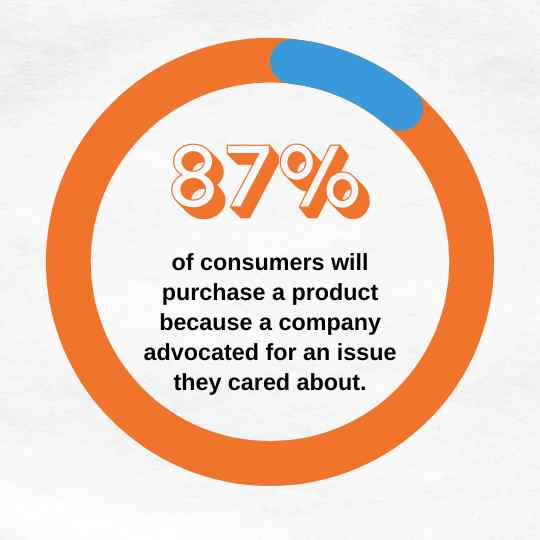
- Enhanced Public Image
- Companies engaging in CSR activities are committed to ethical practices and social values. This fosters a positive public image and builds trust among consumers.
- Example: TOMS Shoes’ One for One program, which donates a pair of shoes for every pair purchased, has significantly boosted the company’s reputation as a socially responsible brand.
- Increased Customer Loyalty
- Consumers are more likely to support companies that align with their personal values. CSR initiatives that address environmental sustainability, fair labor practices, and community engagement resonate with socially conscious consumers.
- 87% of consumers will purchase a product because a company advocated for an issue they cared about.
Attracting and Retaining Talent
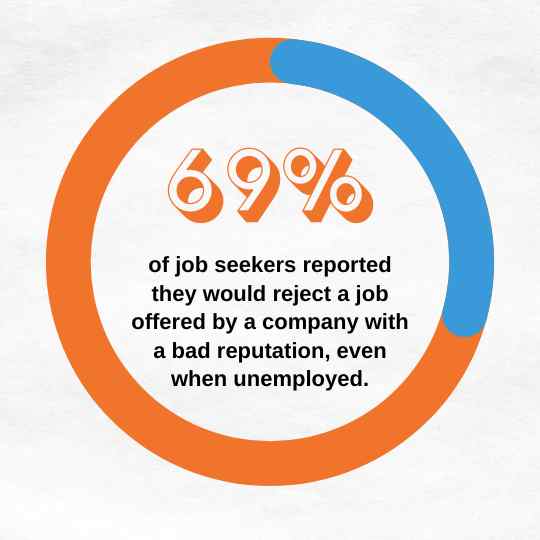
- Employee Engagement
- Companies that prioritize CSR often see higher levels of employee engagement and satisfaction. Employees take pride in working for a company that gives back to the community and supports meaningful causes.
- Example: Patagonia encourages employees to participate in environmental activism and provides paid time off for volunteering, which boosts employee morale and retention.
- Recruitment Advantage
- A strong CSR program can attract top talent who seek employers that reflect their values. This is particularly important for younger generations prioritizing social responsibility in their career choices.
- 69% of job seekers reported they would reject a job offered by a company with a bad reputation, even when unemployed.
Enhancing Brand Loyalty and Customer Engagement
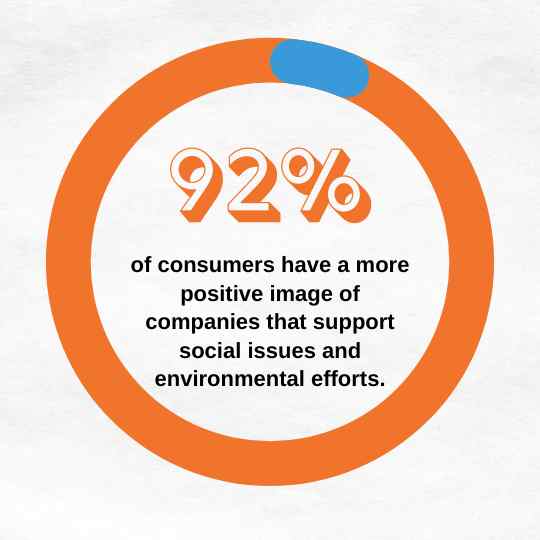
- Positive Customer Perception
- CSR activities enhance customer perception by showing that the company is not solely focused on profit but also on making a positive impact. This can lead to increased brand loyalty and repeat business.
- 92% of consumers have a more positive image of companies that support social issues and environmental efforts.
- Community Support
- Companies that engage in community-focused CSR initiatives build strong relationships with local communities. This support can be invaluable, particularly during times of crisis.
- Example: During natural disasters, companies like Walmart and Home Depot have provided significant aid and resources to affected communities, strengthening their reputational capital.
Mitigating Risks and Enhancing Long-Term Viability
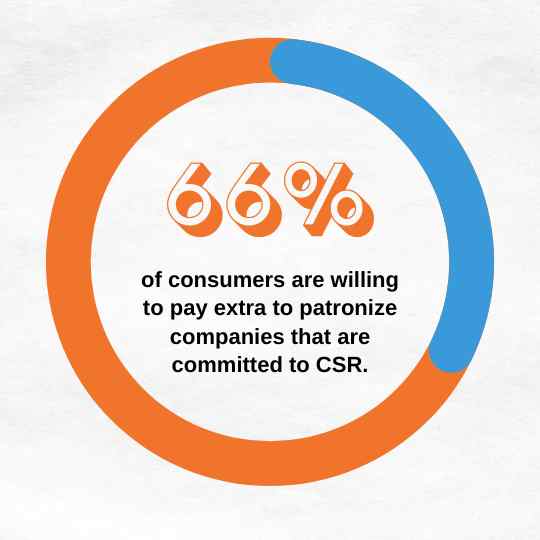
- Risk Management
- CSR helps companies identify and mitigate risks related to social and environmental issues. By proactively addressing these areas, companies can avoid potential scandals and legal issues that could harm their reputation.
- Example: Unilever’s sustainable sourcing program ensures that raw materials are procured environmentally and socially responsibly, reducing the risk of supply chain disruptions.
- Long-Term Success
- Companies that invest in CSR are better positioned for long-term success. Sustainable practices can lead to cost savings, innovation, and a stronger competitive edge.
- 66% of consumers are willing to pay extra to patronize companies that are committed to CSR.
Implementing Effective CSR Strategies
Effective Corporate Social Responsibility (CSR) strategies require thoughtful planning and execution to make a meaningful impact.
Implementing CSR not only enhances corporate reputation but also drives business success.
Here are practical steps to help companies develop and execute effective CSR strategies:
Identify Core Values and Causes that Align with Your Brand

- Understand Your Brand’s Mission and Values
- Begin by identifying the core values and mission of your company. Your CSR initiatives should reflect these principles to ensure authenticity and alignment with your brand.
- Example: If your company is in the tech industry, focusing on digital literacy programs or environmental sustainability in technology might align well with your brand values.
- Engage Stakeholders
- Involve employees, customers, and other stakeholders in the process of identifying relevant causes. Their input can provide valuable insights and ensure that your initiatives resonate with those who matter most.
- Example: Conduct surveys or hold focus groups to gather stakeholder opinions on potential CSR activities.
- Choose Causes with a Tangible Impact
- Select causes that not only align with your brand but also offer tangible benefits to society. This can range from environmental conservation to social justice, education, or health.
- Example: A food company might focus on combating hunger and supporting sustainable agriculture.
Set Measurable Goals and Track Progress

- Define Clear Objectives
- Set specific, measurable, achievable, relevant, and time-bound (SMART) goals for your CSR initiatives. This clarity helps in planning and assessing the impact of your efforts.
- Example: Aim to reduce your company’s carbon footprint by 20% over the next five years.
- Develop a Roadmap
- Create a detailed plan outlining the steps needed to achieve your CSR goals. Assign responsibilities, allocate resources, and set timelines to ensure structured implementation.
- Example: Develop a phased approach to implementing energy-efficient technologies across all company facilities.
- Monitor and Evaluate
- Regularly monitor the progress of your CSR initiatives. Use key performance indicators (KPIs) to measure success and identify areas for improvement.
- Example: Track metrics such as the amount of waste reduced, the number of trees planted, or hours of community service completed by employees.
Communicate Efforts Transparently to Stakeholders

- Transparency is Key
- Communicate your CSR efforts openly and honestly to stakeholders. Transparency builds trust and demonstrates your company’s commitment to making a positive impact.
- Example: Publish an annual CSR report detailing your initiatives, progress, and future plans.
- Leverage Multiple Channels
- Use various communication channels to share your CSR stories, including your company’s website, social media, newsletters, and press releases. Engaging storytelling can make your efforts more relatable and inspiring.
- Example: Create a dedicated section on your website for CSR updates and use social media to highlight employee volunteer activities.
- Engage in Two-Way Communication
- Encourage feedback from stakeholders and be responsive to their concerns and suggestions. This interaction can provide valuable insights and help refine your CSR strategies.
- Example: Host webinars or town hall meetings where stakeholders can ask questions and provide input on CSR initiatives.
Tips for Aligning CSR with Company Values
Aligning Corporate Social Responsibility (CSR) initiatives with your company’s mission and values is crucial for maintaining authenticity and maximizing effectiveness.
When CSR efforts resonate with the core principles of your business, they are more likely to be genuine, sustainable, and impactful.
Here are some tips to ensure that your CSR initiatives reflect your company’s mission and values:
Understand Your Core Values
- Define Your Mission Statement
- Clearly articulate your company’s mission and core values. This foundation will guide the development of CSR initiatives consistent with your company’s stand.
- Example: If your mission is to promote health and well-being, focus on CSR activities related to healthcare access, nutrition, and fitness.
- Conduct a Values Assessment
- Engage with stakeholders, including employees, customers, and partners, to understand their perceptions of your company’s values. This feedback can help ensure that your CSR initiatives align with stakeholder expectations and company culture.
- Example: Use surveys, focus groups, and interviews to gather insights on what stakeholders believe your company values most.
Select Relevant CSR Initiatives
- Identify Relevant Issues
- Choose CSR initiatives that address issues relevant to your industry and community. This relevance ensures that your efforts are meaningful and impactful.
- Example: A technology company might focus on digital literacy programs and e-waste recycling.
- Align with Business Objectives
- Ensure that CSR initiatives support broader business objectives, creating synergy between corporate goals and social responsibility.
- Example: A company aiming to expand in emerging markets might invest in local education and infrastructure projects to build goodwill and community support.
Foster Employee Engagement
- Involve Employees in CSR Planning
- Engage employees in the development and implementation of CSR initiatives. This involvement fosters a sense of ownership and ensures that the programs resonate with the workforce.
- Example: Form an employee CSR committee to brainstorm ideas and lead volunteer efforts.
- Offer Volunteering Opportunities
- Provide opportunities for employees to participate in CSR activities, aligning their personal values with company initiatives.
- Example: Allow employees to take paid time off to volunteer for causes they care about, particularly those that align with the company’s values.
Communicate Authenticity
- Be Transparent About Your Efforts
- Communicate your CSR goals, progress, and outcomes transparently. Authentic communication builds trust and demonstrates genuine commitment.
- Example: Publish detailed CSR reports and updates on your website and social media channels.
- Share Stories and Impact
- Use storytelling to highlight the real-world impact of your CSR initiatives. Share success stories and testimonials to illustrate the difference your company is making.
- Example: Create videos or blog posts featuring beneficiaries of your CSR programs and the positive changes they have experienced.
Measure and Reflect
- Set Measurable Goals
- Establish measurable goals for your CSR initiatives to track progress and impact. This measurement helps ensure that your efforts are effective and aligned with your values.
- Example: Set targets for reducing carbon emissions, increasing volunteer hours, or improving community health outcomes.
- Regularly Review and Adjust
- Continuously assess the alignment and effectiveness of your CSR initiatives. Be willing to adjust strategies based on feedback and changing circumstances to maintain relevance and impact.
- Example: Conduct annual reviews of your CSR programs and solicit stakeholder feedback to identify areas for improvement.
Short Story-Like Narration: The Ripple Effect of CSR
Imagine a small-town bakery that decides to implement CSR initiatives. The bakery starts by sourcing its ingredients from local farmers, ensuring they use organic and sustainably grown produce. They also begin a program to donate unsold goods to local shelters and organize monthly baking classes for underprivileged children.
The community’s support grows as word spreads about the bakery’s efforts. More customers visit the bakery for its delicious pastries and because they want to support a business that gives back.
The bakery sees benefits like:
- Improvements in the local community
- Increased sales
- They can hire more staff
- Enhanced corporate reputation
This story mirrors how effective CSR can transform a business, much like the comprehensive services provided by Reputation X, which helps companies build and maintain a positive corporate image through strategic reputation management.
By integrating CSR into their core operations, businesses can create a profound and lasting impact on society, the environment, and their own success. This holistic approach to business not only enhances corporate reputation but also drives sustainable growth and trust in the long run.
Final Thoughts
Corporate Social Responsibility (CSR) is more than just a trend; it is a crucial element of modern business strategy that enhances corporate reputation and drives long-term success. By understanding the importance of CSR, implementing effective strategies, and aligning initiatives with company values, businesses can build trust, foster loyalty, and positively impact society and the environment.
To ensure your company remains a leader in social responsibility, start by identifying causes that align with your brand, set measurable goals, and communicate your efforts transparently. Embrace the power of CSR to build a better world and a stronger corporate reputation.
Ready to take your CSR efforts to the next level?
Contact Reputation X today to learn how we can help you develop and implement impactful CSR strategies that resonate with your values and stakeholders.
